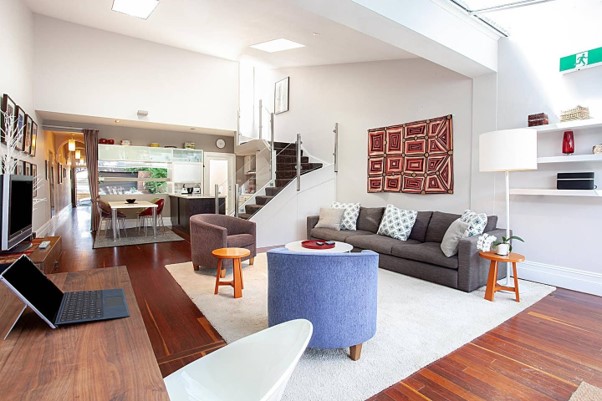
Photo supplied by MadeComfy
When Airbnb initially launched in 2008, short-term rental was a way to earn a bit of extra cash for holiday homeowners and those with spare rooms in their homes.
But with the unprecedented rise in demand for alternative accommodation to hotels and serviced apartments, property investors are increasingly asking themselves:
“Is the potentially high return from short-term rental versus traditional long term leasing the best move towards positive cashflow property?”
Demand for non-traditional accommodation
According to MadeComfy, a leading Australian Airbnb management company, short-term rentals make up approximately 12% of the total tourist accommodation in Australia and according to their 2019 Australian Short-term Rental Report it is very likely this trend will continue to grow into the new decade. The high demand for visitor accommodation is supported by the statistics from Tourism Australia.
Defining short-term and long-term rentals
The exact time frame of short-term rentals varies, but in general, it is described as a furnished self-contained living space or property that can be rented for upwards of a day to as long as a few months.
Long-term rentals relate mostly to the unfurnished rental market where properties are leased for at least six months or on annual fixed term contracts.
Figure 1. Year ending arrivals to Australia and YOY% change.

Source: Tourism Australia, 2020
Key short-term rental benefits
1. Flexibility
Property owners utilising short-term rentals have the flexibility to use their investment property for their personal use and can block out availability for themselves, friends and family.
In addition, even with proper screening, renters can end up with delinquent tenants that don’t pay rent on time, but with short-term rentals, this can be avoided as you are not tied to the same tenant.
It’s also possible to switch back to long-term fairly quickly if required and investors have the flexibility to sell their property without having to worry about being locked in a long term contract.
2. Higher rental rates
Generally, a well managed short-term rental property in a good location generates more revenue due to higher nightly rates.
The ability to adjust prices based on seasonality and special events is a key factor allowing to take advantage of demand peaking which is not possible on a long term lease.
3. Less wear and tear
Another advantage of short-term rentals is more regular maintenance.
Properties are cleaned after every check-out, keeping them in a better condition for a prolonged period, and visually inspected for issues needing repair before they can snowball into more major problems.
4. Tax breaks
Purchases made to furnish an investment property, as well as items such as appliances and whitegoods can be claimed as a tax deduction.
Short-term rental considerations
Even though short-term rentals have many advantages for property investors, this type of rental does come with risks as returns are subject to seasonal fluctuations and it is not suitable for all property types and locations.
Higher costs associated with maintenance, cleaning and furnishing should be considered but the overall annual returns for short-term rentals can be significantly higher than long-term, if these costs are well managed.
Depending on the location, number of bedrooms and condition of the property, MadeComfy estimates that investors can earn from 40% higher returns with professional short-term rental management.

Photo supplied by MadeComfy
Pros of long-term rental strategy
1. Stability
Security is the main reason why property investors opt for a long-term rental strategy.
Long term leases with a set date ensure that money is coming in at a constant rate and landlords don’t have to worry about off-season variances that could potentially make it difficult to rent out the property.
2. No utility payments and furnishing costs
In a long-term rental, the tenants are usually responsible for utility payments. Therefore, landlords face fewer costs especially since long-term rental properties don’t have to be furnished or advertised regularly.
3. Simpler self-management
When it comes to management, long-term rentals are much simpler as less steps are involved since landlords don’t have to worry about tedious tasks like helping guests check-in, check-out, etc. However, end-to-end short-term rental property management companies are making it easier for property owners to benefit from high returns without having to lift a finger.
Where can I get an expert opinion on which rental strategy is best suited for my property?
Leading Airbnb management company MadeComfy offers free property assessments and income forecasts for short-term rental, based on the available market data and current performance of nearby listed properties.
Get an instant estimate of your property’s earning potential with their free short-term rental calculator.
Disclaimer: while due care is taken, the viewpoints expressed by contributors and/or paid content do not necessarily reflect the opinions of Your Investment Property.
